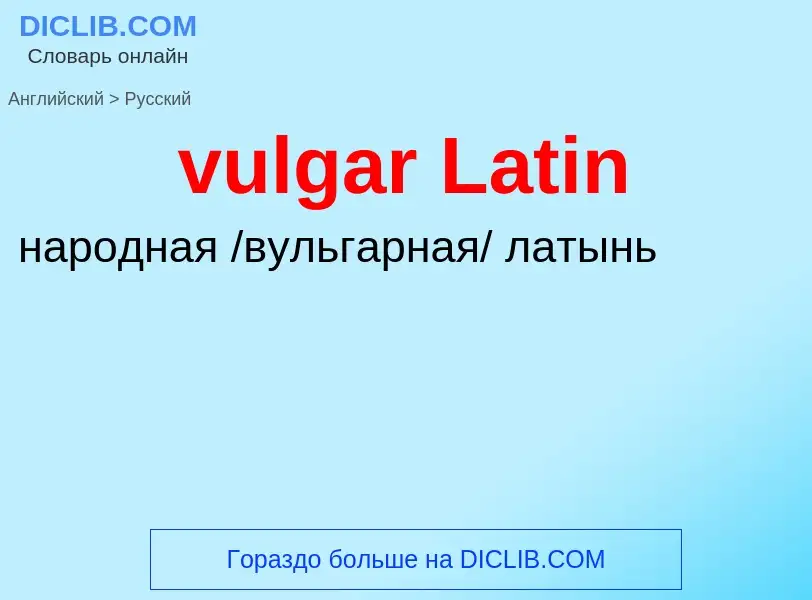Übersetzung und Analyse von Wörtern durch künstliche Intelligenz ChatGPT
Auf dieser Seite erhalten Sie eine detaillierte Analyse eines Wortes oder einer Phrase mithilfe der besten heute verfügbaren Technologie der künstlichen Intelligenz:
- wie das Wort verwendet wird
- Häufigkeit der Nutzung
- es wird häufiger in mündlicher oder schriftlicher Rede verwendet
- Wortübersetzungsoptionen
- Anwendungsbeispiele (mehrere Phrasen mit Übersetzung)
- Etymologie
vulgar Latin - Übersetzung nach russisch
[vʌlgə'lætin]
общая лексика
народный латинский язык
«вульгарная»
«кухонная» латынь
общая лексика
вульгарная латынь
Wikipedia

Vulgar Latin, also known as Popular or Colloquial Latin, is the range of non-formal registers of Latin spoken from the Late Roman Republic onward.
The term 'Vulgar Latin' is both controversial and imprecise. Spoken Latin existed over a long time and in many places. Scholars have differed in opinion to the extent of the differences, and whether 'Vulgar Latin' was in some sense a different language. This was developed as theory in the nineteenth century by Raynouard. At its extreme, the theory suggested that the written register formed an elite language distinct from common speech, but this is now rejected.
The current consensus is that the written and spoken languages formed a continuity much as they do in modern languages, with speech tending to evolve faster than the written language, and the written, formalised language exerting pressure back on speech.
However, the term "Vulgar Latin" is itself often viewed as hopelessly vague and unhelpful, and it is used in very different ways by different scholars, applying it to mean spoken Latin of differing types, or from different social classes and time periods. Nevertheless, interest in the shifts in the spoken forms remains very important to understand the transition from Latin or Late Latin through to Proto-Romance and Romance languages.
To make matters more complicated, evidence for spoken forms can only be found through examination of written Classical Latin and Late Latin and early Romance depending on the time period.


![Cid]]'') is the earliest Spanish text Cid]]'') is the earliest Spanish text](https://commons.wikimedia.org/wiki/Special:FilePath/Page of Lay of the Cid.jpg?width=200)
